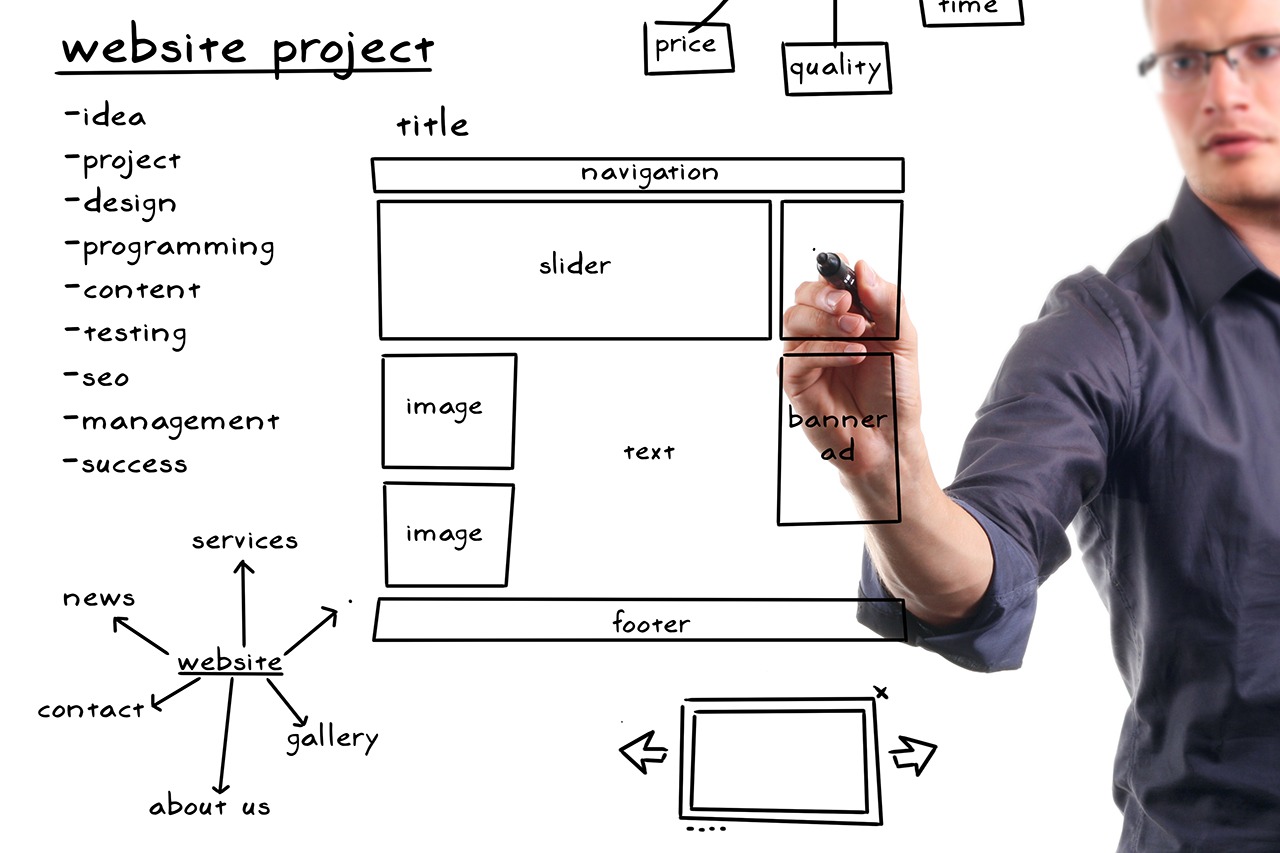
The Ultimate Guide To Website Development In Dubai
This is the most comprehensive guide to website development you will find anywhere online.
In this expert written guide you will find everything you need to know about having a website built for your business. This is NOT a guide to building website for web developers. It is designed for businesses who are looking to have a website built professionally, all whilst knowing the right questions to ask.
If you’ve ever had an issue with getting a website developed before, this guide will ensure you never have one again. So let’s dive in!
The importance of web design to your business
Web design is an essential part of every business. It’s actually unfathomable that in today’s market, a business doesn’t have a website. Long gone are the days of websites that simply housed a company brochure or catalogue. The internet is a vital part of consumers’ lives, and as a result, they expect to see helpful, useful and up-to-date information on a company website.
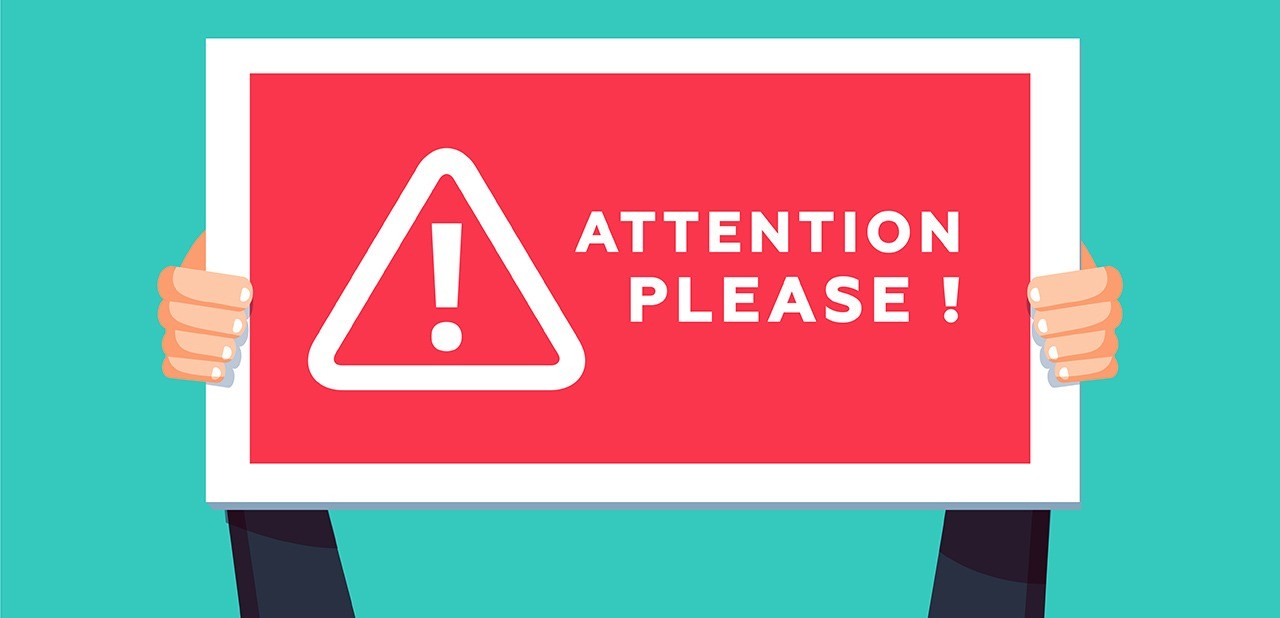
In fact, in a recent survey, 57% of respondents stated that they wouldn’t recommend a business if they had a poor experience on their website. It’s pretty much accepted that the buyer journey now starts with a Google search. This means your website is under the microscope without you even knowing it. If you have poor web design and an old clunky website, you’re more than likely costing yourself business before you even have a chance to speak with a potential customer.
Aside from giving a great first impression there are several other reasons why great web design for your business matters. These include but are not limited to:
- SEO
- Customer service
- Lead generation
- Revenue growth
Your website represents the first impression that is made to a potential customer. If it isn’t very good then you can expect the first impression to be reflective of that.
Your website should be the best sales and marketing tool you have in your arsenal. It never sleeps, it can sell for you 24/7 and should be used as a tool to help guide potential customers to find the right info they need to make a purchase decision. Yes, this goes for businesses that don’t directly sell anything online as well (much like us at INCYCLE).
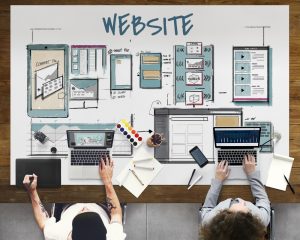 One of the most important aspects of the importance of web design for your business is that you are in competition with more people than ever before. In years gone by, a business was only in competition with those in its immediate vicinity.
One of the most important aspects of the importance of web design for your business is that you are in competition with more people than ever before. In years gone by, a business was only in competition with those in its immediate vicinity.
Now, people have access to stores and businesses across the world, meaning that everyone is vying for attention.
If your local competition has a great looking website that helps its audience to make purchase decisions, then other businesses across the world do too. If you aren’t at least on the same level design wise, then you have already fallen behind.
The great news is that getting up to speed isn’t as difficult as it would appear. That’s why we’ve created this complete guide to web design in Dubai. By the time you’ve finished this guide, you will know absolutely everything there is to know about getting a website built, not just in the UAE but anywhere in the world.
We’ve taken all our years of agency, client management and website development experience and put it all into this one guide. If it isn’t in here, then it isn’t worth knowing. Whether you’re getting your first website built or looking into a website redesign, you’ll be able to make sure you get all the info you need to make the right decision for your business.
Contents
Website vs Funnels
Believe it or not, there are many successful businesses out there that don’t have a website. Now, this might sound completely contradictory given the section above about the importance of web design for your business.
You’re probably aware of the marketing funnel as part of digital marketing campaigns. If you’re not, they basic premise is that people who are making buying decisions follow a process to get them towards their end goal. They follow the following stages:
- Awareness
- Consideration
- Decision
If you do a quick Google search for marketing funnel, you will see endless examples of what this looks like and the various tools you can use at each stage to help a prospect move through yours. Now, this is all great theory, but becomes a bit harder to actually translate into something tangible.
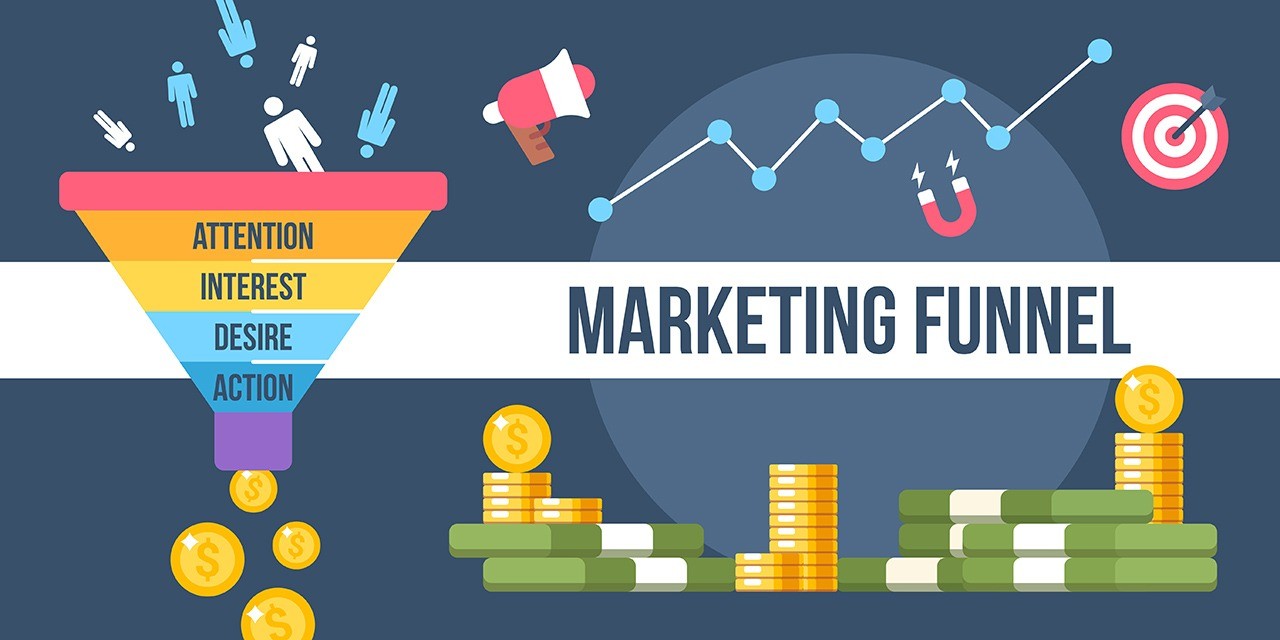
More recently, physical funnels have come into play whereby businesses can create a set of stages and actions that are used to drive traffic, convert them and achieve their business objectives. Most of the time they are built on platforms and a ready to use tools.
Some businesses have taken the decision to replace a traditional website with one or more of these funnels and have seen unbelievable success. Does this mean that abandoning a website for a funnel is the right thing for you? We’re going to break this down for you right now so you can be sure which one you really need.
Now, it’s really important to remember here that you can have a website and funnels at the same time. It’s not an either or choice. Typically we find that businesses like to incorporate funnels into existing websites. It really depends on your business model and what you are looking to achieve from your website and funnels.
We list here the comparisons between the two so you can see which is the best fir for your business (If you feel like you still can’t decide after seeing this, then give us a call and we can work with you to see which option would be right for you).
Freelancer vs Web Development Agency
If you’re looking to have a website built or even have your existing website redeveloped, then you will inevitably come up against the conundrum of whether to hire a freelance web developer, or a web design agency.
There are pros and cons for both and once again, we will be able to shed some light on which is the best option for you. In either situation, you are going to want to know some key things about the person or company that you are looking at.
First and foremost you will want to know what it is you are looking to build and what you want to achieve with your new website development project.
Strengths And Weaknesses
Using a freelancer to build a website for you can be a great option, especially if you have some particular requirements that require detailed knowledge and specialisation.
You are likely to be able to find freelancers very easily and they will often give you a much better price range to have your website developed than an agency. If you want to, you are able to be very hands on with the project and will be able to speak directly with the person who is building your website.

The cost of the money saving though is that you are dealing with an individual. This person may be doing the work cheaper, but they may also have several other projects on the go which could dramatically lengthen the time it takes to get the project finished.
Unless that person has worked in an agency environment, they are unlikely to have a definitive process that ensures delivery or quality of work.
The skills of a freelancer will vary wildly, depending on what you want done and who you select to do the job for you. It’s also highly likely that you will need to manage multiple freelancers for your website design project, as they will take care of only one aspect of it. This may then increase your overall costs as well as the time you have to invest in getting it done.
An agency, by and large, is a much better bet for your website development needs.
A website development agency will have had a great deal of experience with a variety of different projects. This means you get a wealth of experience in a range of styles, coding tools, platforms and design.
There will definitely be a web development team in place to be able to quickly and efficiently deliver work on the agreed stages set out in the scope of work.
A web design agency will also have a tried and tested process that requires approvals at every agreed stage. Having involvement with the client like this guarantees that your project stays on track.
A website development company will also have a great deal many more resources available to them. They can take care of a number of things you wouldn’t necessarily know about.
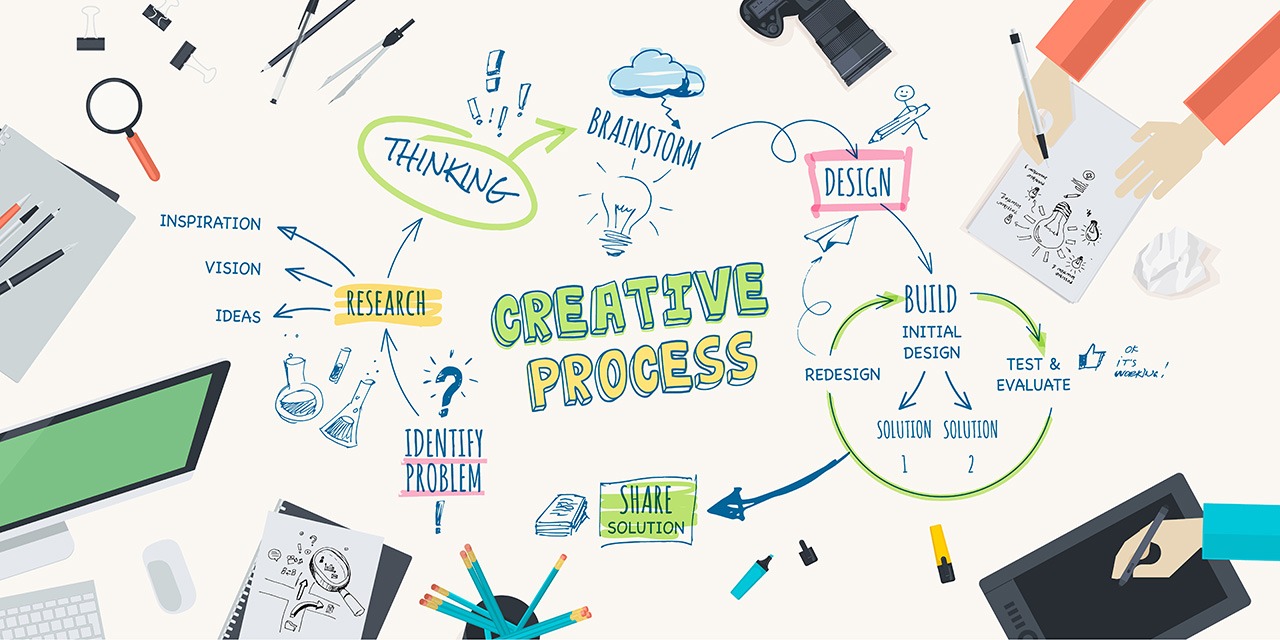
This can usually be built into the cost of your web design, saving you money and effort in the long run. Most agencies will also offer maintenance services too, so you can ensure your website is always updated and managed for you.
A word of warning though. Be wary of any agency that offers website development for extremely cheap prices; i.e. in the range of 1000-2000AED. It is highly likely that they are outsourcing their website design work to other countries.
At the end of the day, you get what you pay for, so if you aren’t prepared to spend the right kind of money on website development, then expect to have to deal with all the issues that come along with it.
Whilst an agency will undoubtedly be more expensive than a freelancer, you are more likely to get the result that you are looking for. The increased price is an insurance policy for your business meaning you get the expertise and security of a great website built for you.
Website: Pros
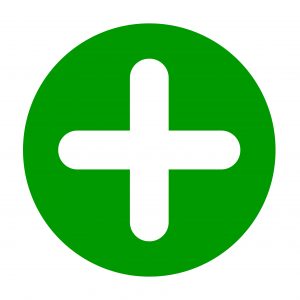
A website allows you to have the full spectrum of information about your business. It can be as big or as small as you like. Provided that you have developed it correctly, will be a professional looking tool that gives a positive reflection of your business.
You have complete control over the look and feel of a website and have a huge range of customisation options, depending on your choice of platform.
There is also the ability to integrate many other tools and third-party platforms to achieve the customised marketing activities you want.
Your website is managed entirely by your team, meaning that your hosting is secured and you aren’t dependent on anyone else for the uptime of your website. Anything you generate in your website belongs to you and you have immediate access to it.
The more content you put on your website, the greater the benefit you get from SEO, meaning free traffic, leads and potentially sales.
Website: Cons
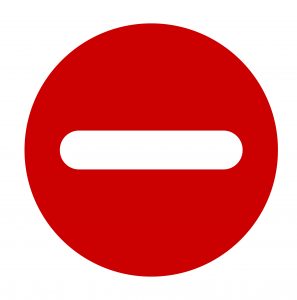 A website, however, does require a lot of regular maintenance. This means either you or someone in your team needs to be able to use the platform your website is built on with sufficient proficiency.
A website, however, does require a lot of regular maintenance. This means either you or someone in your team needs to be able to use the platform your website is built on with sufficient proficiency.
If anything goes wrong, then it’s down to you, your team or someone else you will need to pay to get it resolved.
Websites are often vulnerable to attacks, which means security is a constant challenge. If your site is hacked, you may lose all access.
Even worse, hackers might bring your site down, costing you money either to bring it back online or by missing out on leads and sales from the down time.
To get any benefit from SEO, you will have to create content regularly. This is an investment that takes time if you are doing it yourself, or through paying someone else to create it for you. Optimising this content also takes know-how, or again, paying someone to do it for you.
Building a website can also be a challenge. If you can do it yourself, then your time will be taken up. If you hire an agency or freelancer, you may struggle to get the result you wanted (but more on hiring outside help later).
Funnels: Pros
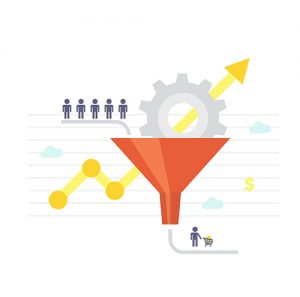 Funnel platforms are incredibly powerful tools. They require little to no web development skills and can be set up, literally, in a matter of hours, ready to roll out and start marketing.
Funnel platforms are incredibly powerful tools. They require little to no web development skills and can be set up, literally, in a matter of hours, ready to roll out and start marketing.
Quite often, the platforms that are used to build funnels have been developed by experienced marketers and will contain all the tools you need to get started. Most will have ready to use templates that require very little editing to deliver a great result.
Customisation of funnel platforms, again, needs very little web design and development skills, which means you can create beautiful looking pages with ease. You will find that you are also able to integrate a number of third party tools with these funnel platforms too.
Security is not an issue you will have to deal with, as you will only have one login to a dashboard, and the rest of the system is managed by the platform. The company managing the platform will have high level security in place already.
Funnels: Cons
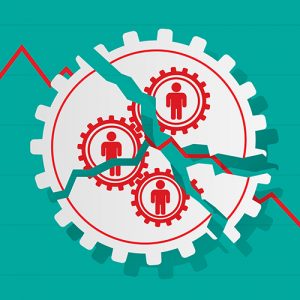 As quick and easy as funnel platforms may be, they can be a little bit tricky to set up. If you want to have a more integrated and professional feel to your system, then you will have to add some updates to your hosting.
As quick and easy as funnel platforms may be, they can be a little bit tricky to set up. If you want to have a more integrated and professional feel to your system, then you will have to add some updates to your hosting.
If you aren’t experienced with this, you may end up doing some damage that can be hard to fix on your server. Getting someone to do it will cost you money, so is an additional expense.
Speaking of expenses, all funnel platforms are pay monthly subscriptions. Some are more expensive than others, but in order to use the tools, you need to pay.
This can rack up quickly if you aren’t getting full use of the tool. There may also be additional charges for upgrades, training and other services.
There is also a learning curve with all platforms. Getting the best out of the one you’re using will take an investment of your time. Doing so may not be something you have the time to do, which could mean you don’t get the full benefit you are paying for.
Using a funnel platform also means you are limited to creating content that sits on the pages built in the tool only. You don’t get any SEO benefit from this, so the option of free traffic is not really there for you.
Generating traffic through paid advertising is generally the way businesses get results, which means you will have to invest there too.
At INCYCLE, we use a combination of the two. This may be a more suitable solution for a wide variety of businesses, but then again, we have a team who is able to manage both sides. It really is up to you and depends on your business factors as to which option is the right one for you.
How To Pick Your Option
 Our recommendation would always be to select an agency. However, this may not be the right option for you, especially if you are limited on your budget options. There may be times when you need a freelancer in to do a smaller job on a part of your site, that a website design agency either won’t take on, due to its size, or will cost you far too much to complete.
Our recommendation would always be to select an agency. However, this may not be the right option for you, especially if you are limited on your budget options. There may be times when you need a freelancer in to do a smaller job on a part of your site, that a website design agency either won’t take on, due to its size, or will cost you far too much to complete.
In order to make sure you pick the right option, here are some things you need to think about when looking to have a website built, as well as some questions to ask.
You need to first and foremost think about how involved you want to be in the process of your website development. You will need to have some idea of a look and feel, but don’t expect an agency or freelancer to be able to read your mind.
You will have to be involved and answer some questions about things you might not have thought about before. Whilst this can be tricky, thinking about it at the start is infinitely better than getting halfway through a project and then deciding to change your mind.
This is what causes major hold ups with projects, and causes a lot of tempers to rise on both sides of the development fence. If you are able to clearly define and relay your info to the person in question and they are able to interpret that then you are more than likely able to to find the right option for you.
You should ask to see examples and case studies of work that either the website development agency or freelancer has done. There really shouldn’t be a problem with this. If they have case studies, take a look at them too. That will give you an idea of how they think about the project as a whole.

You may even want to ask if you can speak with ex clients, or even get their info from the website and reach out yourself. However, if you are satisfied with what you see then you should reach out and take the conversation further.
Your needs in terms of a website build should direct you:
- Do you have time to manage the project?
- Do you know what you want to achieve with the build?
- Will it require specialist functionality?
- Will there be any custom or third-party integrations?
- How long have you got to get the website built?
If you are okay to be more hands on then you may be able to save yourself some money, however, if you need the project taken care of from start to finish, then an agency is definitely where you want to heading.
Being fully cognisant of the website development process is also a great way to know which option is best for you. If you really understand the way the site will be built, what is required before, during and after, then you should be easily able to work out who is most likely to get you the best result.
Which Website Platform Should You Choose?
This is one of the most important aspects of your website development project. Not all website platforms are created equal and each one provides different features. We’re going to take you through the major platforms and types of web design so that you can understand what you’re getting.
There are three main types of website platform:
- CMS (Content Management System)
- Website Builder
- Custom Coded
We will be taking you though what a CMS is in more detail a bit later on in this article, but for now we will give you a brief overview of what it does.
CMS Platform
A CMS style website is a website that is built on a platform that allows complete customisation. Usually, this is built with a page builder tool and more often than not, is started with a pre-filled template. This is a great option as most of the heavy design lifting is already done. The major platforms that are used for this type of website development are as follows:
- WordPress (Our favourite platform)
- Magento
- Drupal
- Joomla
CMS platforms allow for as much or as little customisation as you like. This is great for those who want complete control over the look and feel of their website. However, this means that they require a bit more attention and upkeep than other types of website platforms.

These platforms also integrate with a massive range of plugins that range from free to paid. There are specialist companies out there who build apps and plugins exclusively for these platforms so support is never far away should you need it.
A CMS platform is a great option for businesses of all sizes, due to their ease of use, accessibility, customisation options and out of the box web design options. These platforms are also free to set up and use, so can represent a very cost effective option for those on a tighter budget.
Website Builder
Website builder platforms are a more recent development in the world of website development. They were created to help people quickly and easily put together a website for their business with the minimum of hassle and fuss. It’s quite likely that you already know these platforms but the three biggest ones out there right now are:
- Shopify
- Squarespace
- Wix
These types of website platforms are largely drag and drop or WYSIWYG (What You See Is What You Get). They deliberately limit the access to coding on these platforms so you can spend more time building the site.

This is great for people who don’t want to mess around with building a site and want to get online as quickly as possible.
However, with convenience, comes cost. All of these website builder platforms require a monthly subscription. There are free options within these, but they are extremely limited or only offer a free trial before payment is required.
They are also extremely limited with design and layout options. Many will provide free templates, which frankly aren’t very nice, which means you will have to spend on buying a premium option, which often aren’t cheap.

You can pretty much forget about customising this beyond changing text locations, images and copy within them. There are some companies out there who can edit the code on these, but again, don’t expect this to be cheap or quick.
These types of platforms tend to be good for ecommerce businesses. Especially those that generate high traffic as they are hosted on the website builder platform servers. This does ensure a great deal of security, website speed and up time.

You can also make use, in Shopify’s case, of their payment gateway option so you don’t have to mess around with payment gateway providers (again, this comes at a price). T
he cost to modify and customise these platforms can get quite high quite quickly, so unless you are prepared to spend more money on them, it might not be the best option for a startup business. Which is ironic as most of them tout themselves as platforms for startups!
Custom Coded
 Custom coded websites don’t tend to feature so much in the world of website development any more. Many years ago, they were the way that most agencies built them as the other options simply weren’t available.
Custom coded websites don’t tend to feature so much in the world of website development any more. Many years ago, they were the way that most agencies built them as the other options simply weren’t available.
Custom coded websites are exactly what they sound like. Customised to the nth degree, starting with the website design, layout, structure, functionality and finally code to put it all together.
As an end user of the site, there is very little you can do with it. Often an agency will build their own CMS for the site and give extremely limited access to it.
Every one will be different, and in our honest opinion, web design agencies only do this now so that they can hold on to a website management contract for a client.
The client will have very limited ability to make changes and updates need to be done by the agency. You won’t find any plugin integration, so additional functionality will need to be custom coded as an application for that site.
These represent the most expensive type of website build and unless you are 100% sure this is what you are after, then we would advise against getting one done. Be wary of an agency that insists on custom coding as site for you. You may end up regretting it.
The Difference Between HTML & CMS
There is often a bit of confusion when it comes to understanding the difference between HTML websites and those built on a CMS platform. HTML has become a bit of a catch all term for anything that is coded using a raw coding language i.e. HTML5, PHP, javascript, CSS, Ruby, Python etc… These are simply coding languages that a web developer will use to build a website, apps or other aspects of an online program.
When it comes to website development and the language a website is built on, it can be a bit confusing as a CMS website can also use HTML in parts of it for further customisation.
A website built entirely in HTML will be fully customised and designed using nothing but code, as explained in the section above. However, don’t be too frightened if a website development agency tells you that they will need to custom code some sections of your website. T
hey may need to do this to be able to deliver on your project. Not all aspects of a template CMS style website are suitable for your individual website. Some aspects may need to be customised using HTML.
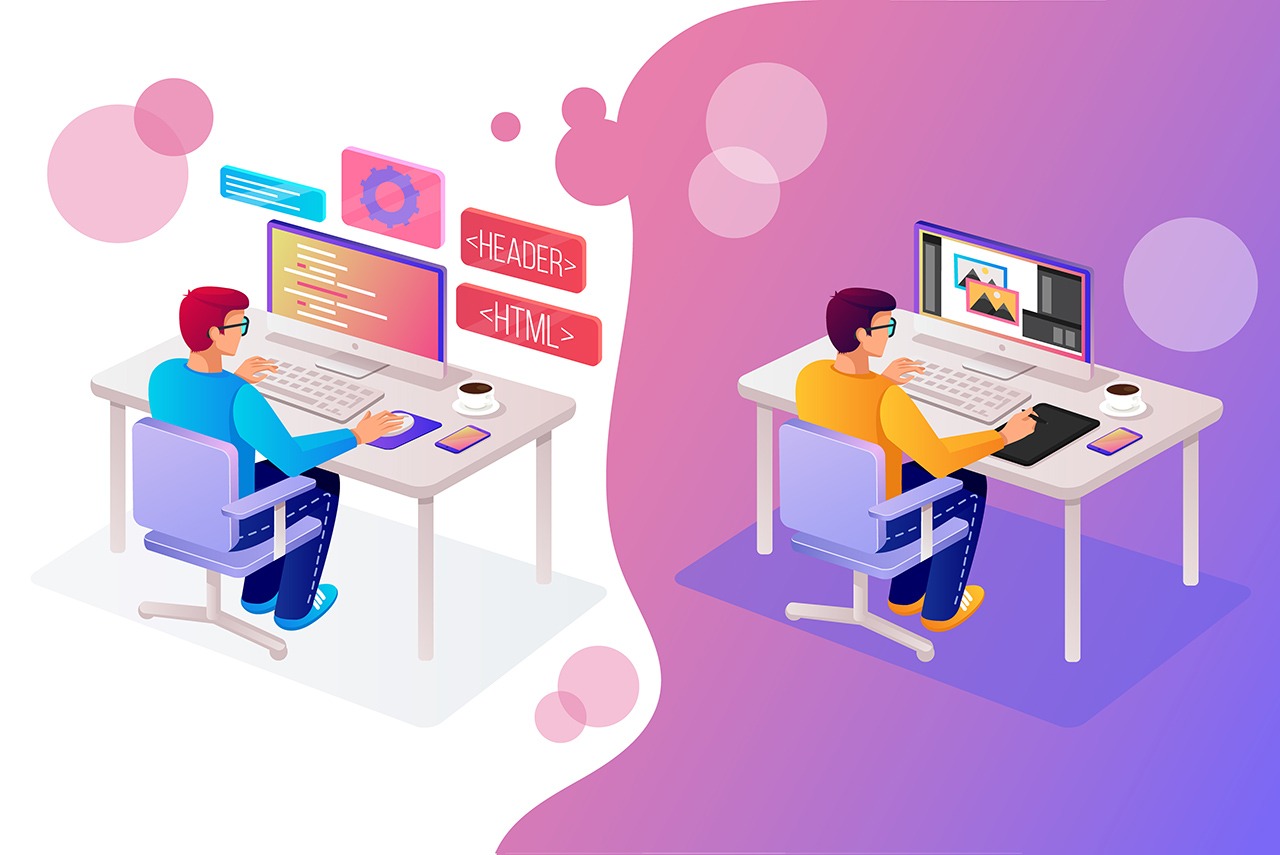
In our honest opinion, custom coded websites are somewhat obsolete these days. Businesses need to have access to their websites in order to update and edit them.
If you’re using your website properly, you should be going inside it on an almost daily basis. The ability to manage numerous aspects without the help of the web design agency is something that you must have.
As we already said, custom coded websites are a great deal more customised than those in a CMS format, but they are also a lot more difficult to manage.
They can be incredibly cumbersome to work with, especially if you have to ask the agency to deal with it all the time. This may also become expensive for you if the agency will charge for additional work.
Website Plugins & Tools
You’ve heard us talking about plugins and other third-party integrations quite a lot, and you may be wondering what these are. Plugins are additional elements that allow for specific actions and customisation to take place on the website. They can be for incredibly complex things as well as the most basic, such as collecting email addresses in webforms.
 All websites come in a blank shell format and will require additional elements to be inserted so that you can perform the actions you need. You will be able to find plugins only available for CMS and website builder platforms, but be careful. Plugins aren’t compatible with every platform and you may not be able to find the right plugin for the platform you’ve selected.
All websites come in a blank shell format and will require additional elements to be inserted so that you can perform the actions you need. You will be able to find plugins only available for CMS and website builder platforms, but be careful. Plugins aren’t compatible with every platform and you may not be able to find the right plugin for the platform you’ve selected.
You will also need to pay attention to how many plugins you are adding to your site, as they will slow the speed of your website down eventually.
There may also be conflicts with too many plugins, which could cause your website to break. You really need to understand what it is you are trying to achieve and see if there is a way you can resolve this without adding plugin after plugin.
 Compatibility is another issue you may come up against, especially when building a website on a CMS platform. Some plugins may not have been updated in a long time and will no longer be compatible with your version of CMS platform.
Compatibility is another issue you may come up against, especially when building a website on a CMS platform. Some plugins may not have been updated in a long time and will no longer be compatible with your version of CMS platform.
The good news is for INCYCLE clients, is that we always use premium plugins that provide support. Our clients never face compatibility issues and we continually update them so that they continue to deliver the highest performance for your website.
Which Platform Is Best For Your Business?
First and foremost, you need to think about what you actually want from your website. This should really help to guide you in your decision making process. If you are happy to have a website development agency completely manage the entire process, as well as the updating and day-to-day managing of your site, then a custom coded site might be the option for you.
In today’s market though, it’s probably not the best option for businesses. It takes a long time to build and allows zero room for on the fly customisation and addition.
 If you’re an ecommerce business, then you may want to look at a website builder platform. Shopify being one of the top options out there. It’s a great place to start, mainly for its robust security and payment gateway options.
If you’re an ecommerce business, then you may want to look at a website builder platform. Shopify being one of the top options out there. It’s a great place to start, mainly for its robust security and payment gateway options.
However this platform doesn’t allow for much in the way of expansion or customisation with a hefty fee. In fact, we have in the past, shifted clients who started out on Shopify to a WordPress platform. The reason for this is that the customisation the client began to need would have cost them more than a whole new build on WordPress.
A website builder platform is really only useful for businesses that need a quick fix at a relatively cost effective price range. As your business grows, especially in ecommerce, you will find that a large portion of your profit will go into simply maintaining the platform.
A CMS platform, we generally believe is the best option for most businesses today. Most of the internet would agree with us too. In fact, roughly a third of the internet’s websites are built on WordPress.
 CMS platforms allow for all business sizes to get maximum impact from their site. Their range of free options are often professional enough and the paid options will take your business to the next level with a minimum of hassle.
CMS platforms allow for all business sizes to get maximum impact from their site. Their range of free options are often professional enough and the paid options will take your business to the next level with a minimum of hassle.
With a CMS you are able to customise to your heart’s delight without having to pay exorbitant agency fees to manage it. The ecommerce facilities are world-class and are easily expandible as your business grows.
You are far more likely to get a great result with your website development project using a CMS platform than you are with others.
Ultimately, the decision is yours, but from our experience of building all types, these are the ones our clients are happiest with.
Website Goals
You wouldn’t believe the amount of times we’ve asked clients about their website goals and received a blank stare back at us. However, this is one of the most important things you should be thinking about when looking to website development project undertaken.
So, what do we mean when we say website goals? What we mean is, what do you want to have happen when people visit your website. Typically, you’re going to want to have your website do one or more of the following:
- Collect contact details
- Get people to contact you directly
- Convert people into paying customers
Whichever of these three main goals your business fits, is a key indicator for how your website should be structured and laid out. Your website should be your number one proponent of growth, which means it needs to reflect your business and revenue goals online.
You may want to add things to your website later on as part of new expansion and growth plans. This will mean you will need to think about how this will be added to the website later on. Is it something you desperately need right now, or can it wait? How will your audience use the website and will you need sturdier web hosting to be able to manage the increase in new visitors?
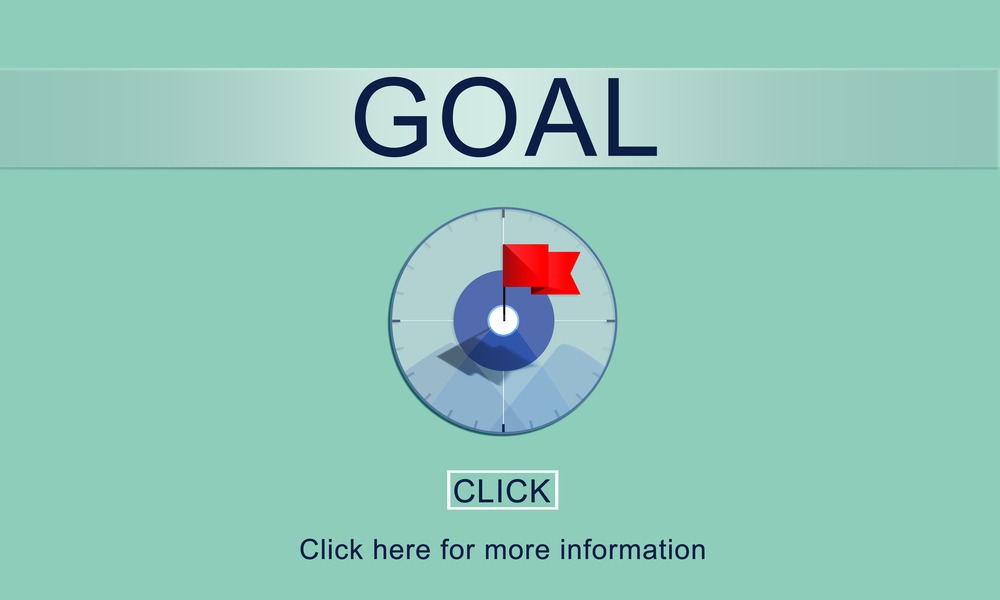
Many businesses simply don’t think about these things when they speak with a website develpment agency. They simply want a new website because they think they need it.
As with all aspects of marketing and sales, your goals are essential to success. If you build a website with no goals in mind, you may end up with a white elephant, or even worse, a very costly website that needs to be fixed.
Website Development Designed Around Your Business Goals
The best website development agencies will be able to guide you on this. It’s not an easy thing to be able to do, which is where a full understanding of your buyer personas and their buying journey is essential to getting this right.
 You will want to be map out and plan the interaction they will have with your website content, as well as in which order you think they interact with it.
You will want to be map out and plan the interaction they will have with your website content, as well as in which order you think they interact with it.
For example, if you are selling products on your website, you will want the shop and product categories to be quickly and easily accessible, meaning they will need to have a prominent location in the navigation menu. You may also want to have a sidebar or notification on every page highlighting popular or on sale items.
You will need to know exactly what pages you want on your website, so that you can plan the objective of every page. There should be no redundant pages at all.
Every page should relate back to the prime objectives and goals of your website. In this way, you will be able to work with your web design agency to carefully and precisely map out each page according to your prospects journey’s.
If you envisage having a lead generating website, then you will want to make sure that you are funneling as much traffic to those pages as possible.
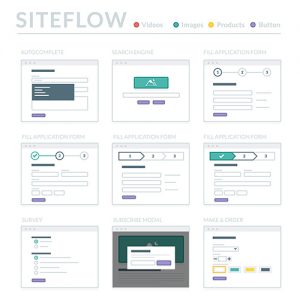 For example, if you have an ebook that you want people to download, then you will want to have this positioned prominently on the homepage. Again, you will also want to have strong Calls To Action across the site that direct visitors there at every page they visit.
For example, if you have an ebook that you want people to download, then you will want to have this positioned prominently on the homepage. Again, you will also want to have strong Calls To Action across the site that direct visitors there at every page they visit.
You should be starting to get the idea that your website design should not be focused around you. Rather, it should be focused around helping your prospects to find the information they need, as quickly as possible, at every stage of their buying journey.
We also understand that this may be a completely new approach and way of thinking about your website. This is why all of our clients receive a website structure plan for every site we build.
To learn more about how we do this, you can send us a message and we will be happy to clarify any questions you may have.
UX & UI
You may have heard these terms bandied round in meeting rooms or overheard at the cool lunch spot. They might not make much sense to you and even if you know what they mean, you might not necessarily understand the difference. Either way, both UX (User Experience) and UI (User Interface) are incredibly important aspects of your website design.
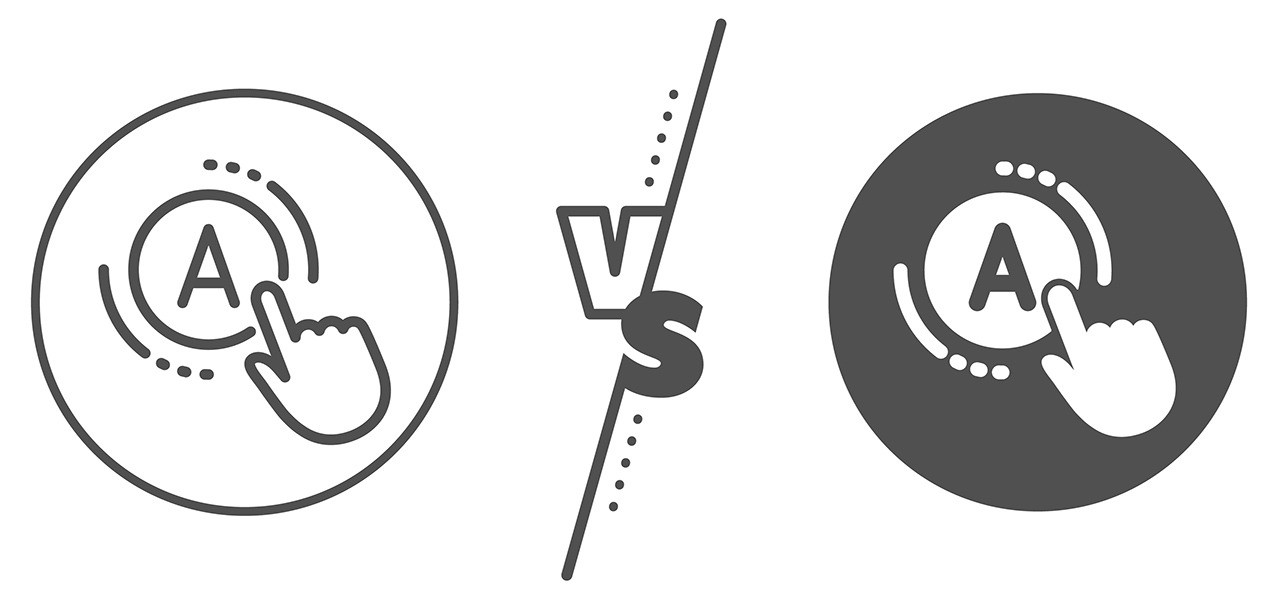
These two elements, whilst being completely separate, are entwined in the overall performance of your website. You may not have that much input into how these come out, but your web developer will certainly need to have a keen eye for this when bring your website to life.
Huge amounts of thought go into UX & UI. Apple for example, spent thousands of hours and dollars into the experience that people get when they open the box of the iPhone. You know they way it pulls slightly as you open it, giving it the feel of resistance. It helps to build anticipation and excitement for the grand unveiling of the phone itself.
Now, Apple can afford to spend that kind of time and money on developing this experience, your business may not. That doesn’t mean you should ignore how people interact and experience your website.
UI (User Interface)
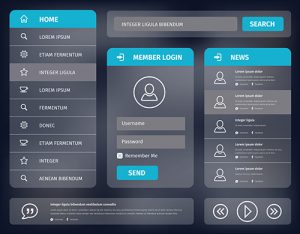 UI is the basic layout of a website or app. This means that it is primarily concerned with the colours, fonts, buttons, images and space within the website. However, this is not limited to the static elements. How the site scrolls, the transitions from slide to slide and every interaction is covered in UI.
UI is the basic layout of a website or app. This means that it is primarily concerned with the colours, fonts, buttons, images and space within the website. However, this is not limited to the static elements. How the site scrolls, the transitions from slide to slide and every interaction is covered in UI.
Typically UI is managed by graphic designers who will develop and design every aspect of a website look and feel. They will then hand this over the web developer who will translate this into either code (if the site is being custom coded) or reworked through the template.
Whilst this is very heavily sided towards the design element of things, if the UI design is not good, then it will have a knock-on effect with the UX part of the development. Bad design will equal a bad experience.
UX (User Experience)
 User experience is all about how a user will interact with the website. Having read the above section, it might be easy to think that UX will be taken care of with proper UI design. Whilst this plays a part, it doesn’t guarantee a great UX.
User experience is all about how a user will interact with the website. Having read the above section, it might be easy to think that UX will be taken care of with proper UI design. Whilst this plays a part, it doesn’t guarantee a great UX.
The UX determines how easy or difficult it is for someone to actually use the website and achieve the result they are after. Does the UI make the process difficult for someone to find what they are after? Is using the site smooth and intuitive, or is it clunky and arbitrary?
The main job of UX designers is to interpret the design given to them and ensure it all makes sense when put together. They decide the best way to navigate between the pages and how all design elements can be accessed and interacted with easily.
You may feel at this point, that the above sections don’t really involve you all that much. The execution of UX and UI certainly won’t but they way these elements are designed will be impacted by what insights and instructions you are giving them.
We spoke about the buyer journey earlier and now we will take a look at how the buyer journey impacts the design.
The Buyer Journey
We covered the buyer journey a little bit earlier on. Now we will dive into the importance of really understanding the route someone will take on your website and how this will translate into a great user experience through website development.
Not all pages on your website are equal. Some pages carry more importance than the others. What those pages are, initially, you will have to take a guess at. Once you have had your website up and running for a while, then you will be able to see which pages help convert more traffic and which pages people spend the most time on during their buyer journey.
We normally like to plan out the buyer journey separately. This helps us to understand what they would want to see at each stage of their journey. We ask questions such as:
- What would my prospect want to see at the awareness stage?
- What information will they need to compare at the consideration stage?
- How can we make it easy for them to contact us at the decision stage?
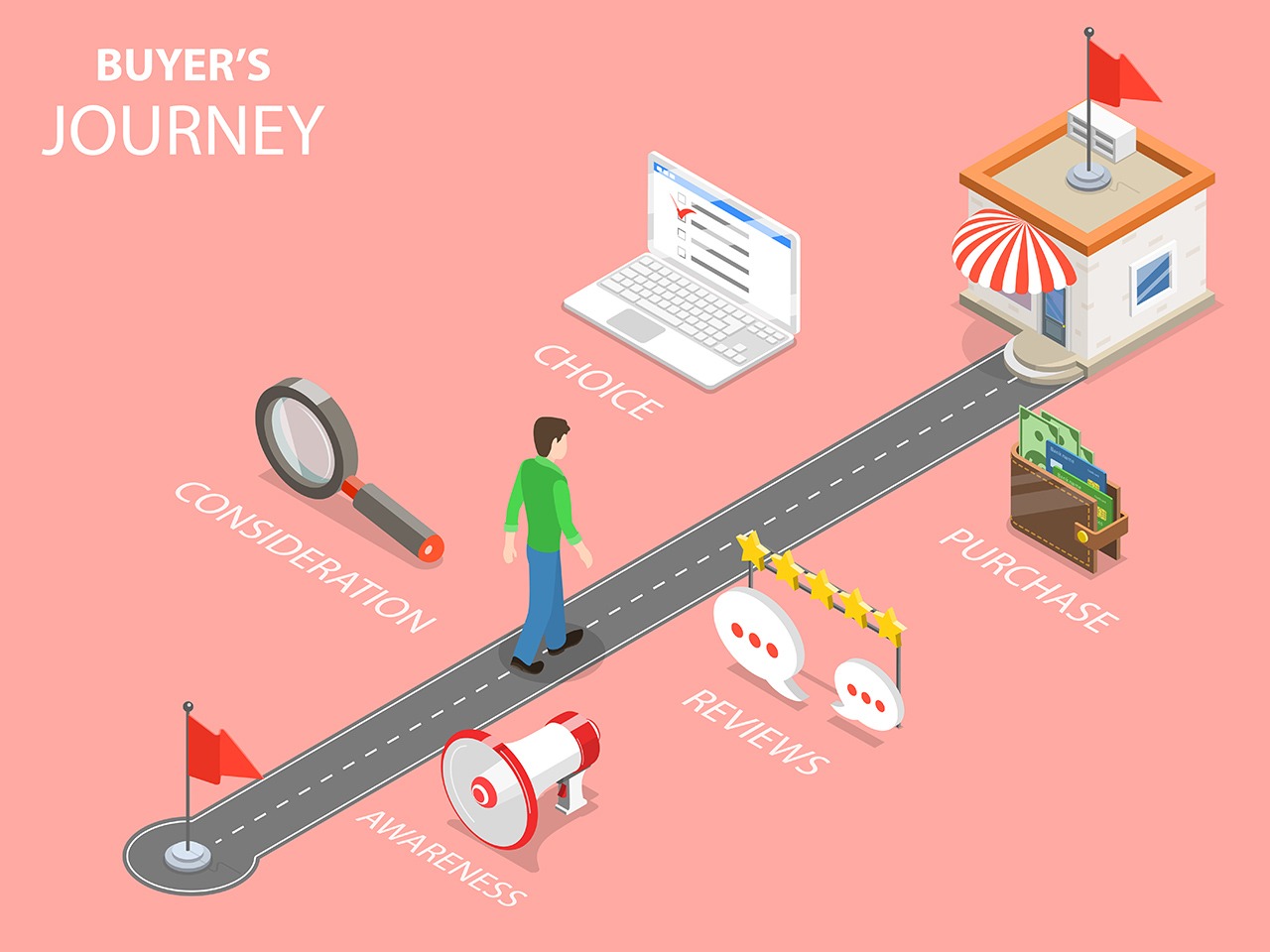
When you break it down like this, you will often think about things differently and understand what becomes important for visitors to see and where to see it on your site. You will also begin to understand how you would like visitors to move through your site in order to help them complete the journey.
You should be able to see by now that your website is not as much about you, your products and services as you would like to believe. It should be more about making it nice and easy for people to find your website, get a great experience when using it and ultimately help them to make the buying decision you want them to make.
Form vs Function
Unfortunately, what can happen in the weird and wonderful world of website development is that people get too caught up in what the website looks like and not how it performs. Anything is possible in terms of the way you want it to look. Just because you may be designing a website with a template, that doesn’t mean you are limited to the way that template has been designed.
You are able to create anything your mind can conjure with website development. There are literally no limits. Sometimes though, this is taken a bit too literally and you end up with a stunning looking website that simply doesn’t do anything for you.
You see this a lot with creative agencies. The like to show off just how creative they are, which is fine, but unfortunately this makes it quite difficult for their prospects to actually reach out to them.
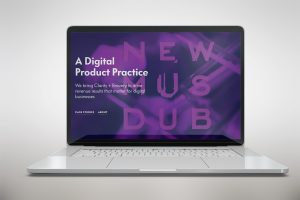
The buyer journey hasn’t been taken into account and so, their website does nothing to help them at best and potentially may hinder them at worst.
The flip side of this is websites that are far too functional. You tend to not see this too much anymore as these functional websites are throwbacks to early web designs that were simply online brochures and catalogues. Unbelievably, you can still find these archaic websites floating around, especially in the finance and industrial sectors of the internet.
 The issue that you have here is that they are so straight to the point they come across as boring, dry and unimaginative. Now, imagine you are an energy company and you claim to be providing superior energy solutions that are futuristic and forward thinking. If your website design is plain, undynamic and simple, it’s not really reflective of what you are telling people you are.
The issue that you have here is that they are so straight to the point they come across as boring, dry and unimaginative. Now, imagine you are an energy company and you claim to be providing superior energy solutions that are futuristic and forward thinking. If your website design is plain, undynamic and simple, it’s not really reflective of what you are telling people you are.
The key to successful website development is to have balance. There are going to be elements that need to be functional on your website. That doesn’t mean it needs to be plain and boring.
If you have been following the journey we have been taking so far, you will understand that a website that is too flashy is more about the business that the people it’s supposed to help. There needs to be balance between the two, so that your business can show off in the right way.
Planning and preparation to understand the buyer journey should give enough guidance for the web designer to be able to correctly design and map a UX and UI that satisfies every part of your website needs.
Website Hosting
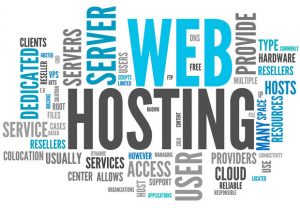 This is one of the most important aspects of website development that is often overlooked by clients. It’s also probably one of the most misunderstood and confusing elements to those who have no idea what they are dealing with.
This is one of the most important aspects of website development that is often overlooked by clients. It’s also probably one of the most misunderstood and confusing elements to those who have no idea what they are dealing with.
Your website hosting, simply put, is the space online where all of your website files are hosted. Your website files being your images, videos, copy, buttons, products, forms and everything else you want people to see on your website. It needs to be placed or hosted somewhere and your hosting is the place in which it goes.
It is also where your website domain, or URL, points to find all of these files. It’s basically just an online storage facility that pulls up all the information when required.
Your website is not all online like a physical store. Only the page that is being viewed is live and each one is pulled up when navigated to. This is why there is load time when you view web pages, but this is a topic in a section further down.
Different Web Hosting Options
There are lots of different types of hosting, but considering you are looking to get a website development agency to manage your web development for you, then you are really only going to need to know about two or three types of hosting.
A lot of the time you will have your own hosting already set up and sorted. Popular platforms like Godaddy, Blue Host and Just Host provide excellent web hosting options. However, each of these will have different options for you within their services. So, which one is right for you?
Shared Hosting
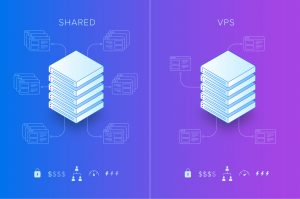 The most widely used sort of hosting. This is where your website will share a server with several other accounts. You won’t have access to the other hosting accounts, nor will they have access to yours, but you all will share the resources provided by that one server. Whilst this is an economical option, it often isn’t long until you will be requiring more space and bandwidth.
The most widely used sort of hosting. This is where your website will share a server with several other accounts. You won’t have access to the other hosting accounts, nor will they have access to yours, but you all will share the resources provided by that one server. Whilst this is an economical option, it often isn’t long until you will be requiring more space and bandwidth.
VPS (Virtual Private Server)
A VPS is similar to that of shared hosting, however, it acts like it is on its own server. This means you are guaranteed to have resources available to you, so there is no risk of your website going down because someone who is sharing the server with you is sucking up all of the resources.
Dedicated Server
Unless you are a large organisation that stores a lot of data and has huge volumes of traffic, you are unlikely to need this type of server. This server is exactly what it says it is. You own server, not shared with anyone else. This is the most expensive option for hosting but is the most robust.
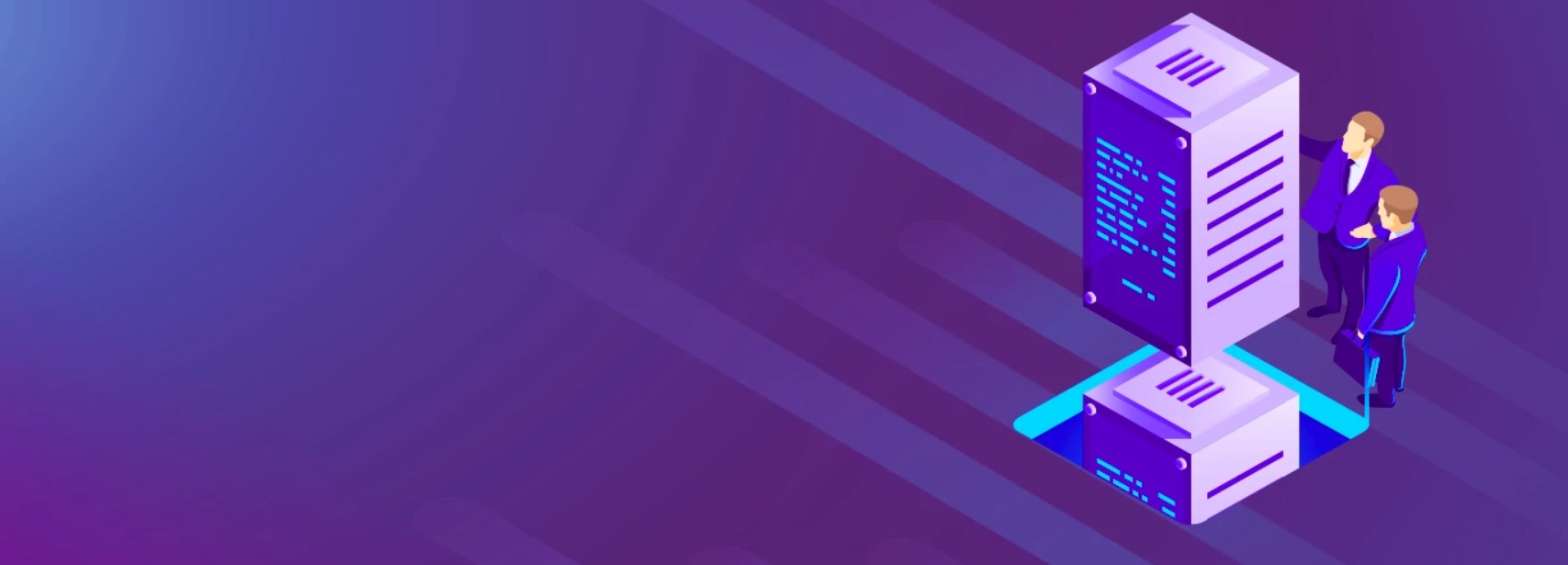
Own Hosting Or Managed?
Should you take care of your own hosting or hand everything over to your website development agency to manage for you? Most web agencies will offer the option of hosting your website for you.
They will often have large hosting plans to accommodate most database sizes and, of course, they know what they are doing with them so you can be sure it will be organised and managed properly (most of the time!).
 The obvious downside to this is that you won’t really have access to it and should there be any issues with the web design company, you may face issues either trying to have any work done on it, or even gain access to the site at all.
The obvious downside to this is that you won’t really have access to it and should there be any issues with the web design company, you may face issues either trying to have any work done on it, or even gain access to the site at all.
If you wish to purchase and manage your own hosting, then the security issues are avoided. However, if you don’t really know what you’re doing with the hosting, then it can be frustrating and tricky to manage.
You will more than likely have to ask either a kindly soul to set it up or pay a professional to do it for you.
If you don’t have your own hosting and can’t be bothered to deal with the issue of managing it yourself, you can usually ask the website development team to purchase hosting on your behalf.
Normally they will simply add it to the cost of your website build. Failing that, they will just ask for your card details and purchase it like that.
However you decide to do it, you must have hosting. Without it, you won’t have a website!
Website Maintenance
 Just because you have a shiny new website up and running, that doesn’t mean the job is done. You should, by now, realise that your website is a living, active member of your business and subsequently needs maintenance.
Just because you have a shiny new website up and running, that doesn’t mean the job is done. You should, by now, realise that your website is a living, active member of your business and subsequently needs maintenance.
Plugins need to be updated, pages need to need to be updated, blogs added, images changed, SEO updated, the list is pretty much endless.
Fortunately, this is something that your website development agency will manage for you. At INCYCLE, we offer yearly maintenance as standard, usually for around 5,000AED per year.
This entitles clients to 5-10 hours per week of maintenance and edits to the site for a 12-month period. In doing so, clients can rest assured that they won’t experience any downtime and any other issues that may arise are taken care of immediately.
Yearly vs As And When
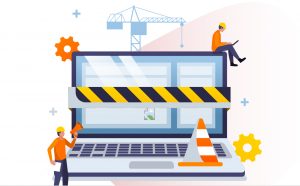 Not all website development agencies will offer this service or for this length of time. Some will only offer 1 month maintenance after delivery of the website, then you’re on your own. They may offer a maintenance service additional to this, so make sure you know what is on offer.
Not all website development agencies will offer this service or for this length of time. Some will only offer 1 month maintenance after delivery of the website, then you’re on your own. They may offer a maintenance service additional to this, so make sure you know what is on offer.
The other option that may be offered to you is an as-and-when maintenance service. This means you only pay for the work done on the site when required. However, this is usually charged at a premium rate, normally anywhere from 300-700AED per hour.
If you require major maintenance then this could be a very costly issue to cover. You may also find yourself paying over the odds for very minor work too.
Your best bet is to see what maintenance services are offered by your chosen web design company and take a year long contract with them. They are much more cost effective and your site is maintained by the people who built the site all year long.
Website Backups
Ever felt the pain of losing an hours hard work on your computer when it crashes and you haven’t saved anything? Imagine losing your entire website to a server error, hackers or malware.
A word to the wise. These are super important things to do and should be done on a regular basis; at least once a month. Full website backups can vary in time depending on the size of your website database and how much you have in your site in general.
We aren’t going to teach you how to do this, as it can be quite complex depending on the type of hosting you have and with which service you have it with. Even then the type of database you are using can mean things go differently. Now that really is another topic for another time!
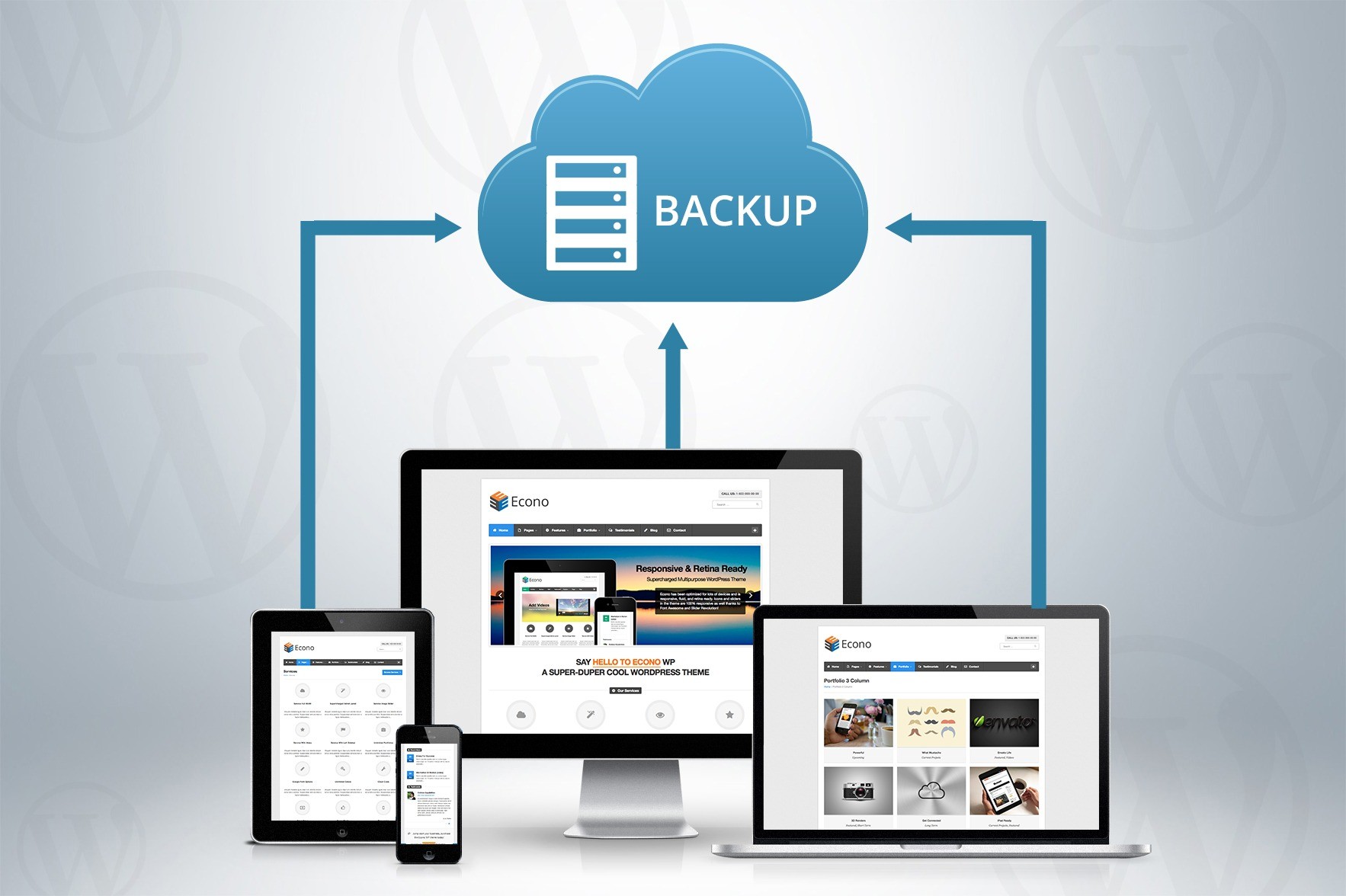
If you have a yearly maintenance contract with your web development agency, then they will take care of this for you as standard. You won’t necessarily receive one every month, but you will be safe in the knowledge that you have backups being done for you every month.
Should the worst happen, you will be able to have your site restored to the last backup, so at worst, only minor changes will need to be made to bring it back to the latest version.
When speaking with a web design company, you should always ask about how often they back up their sites and where they store them. The answer should always be, every month and offline.
Website Content
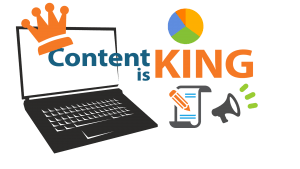 It seems odd that we have covered so much on website structure and design and have only now got to talking about the content your website should contain. Your content can vary massively. Content can be anything from the text on the page, to videos, audio, downloads, sliders, buttons and everything else in between.
It seems odd that we have covered so much on website structure and design and have only now got to talking about the content your website should contain. Your content can vary massively. Content can be anything from the text on the page, to videos, audio, downloads, sliders, buttons and everything else in between.
One thing we get a lot of from website clients are those who ask us to perform SEO on their new site, yet fail to provide us with more than 600 words across the entire site.
The content on your website is equally as important as the form, function, design, UX and UI. Without high-quality content, your website will never be able to convert anyone, no matter how meticulously planned out it is.
Much like the planning of pages and design for your buyer journey, the content on your website must be well thought out. Now, this doesn’t have to be done all by yourself.
This is what the website development team you have hired are there to help with. However, specific and key pieces of content that are essential to your business message need the same care and attention to detail as the rest of your site.
Keywords
Never has so much hope been placed in so few words by so many businesses. Keywords are both a blessing and a curse for businesses in today’s internet marketing age. They are some of the most powerful elements on your website and entire pages can and should be constructed around them.
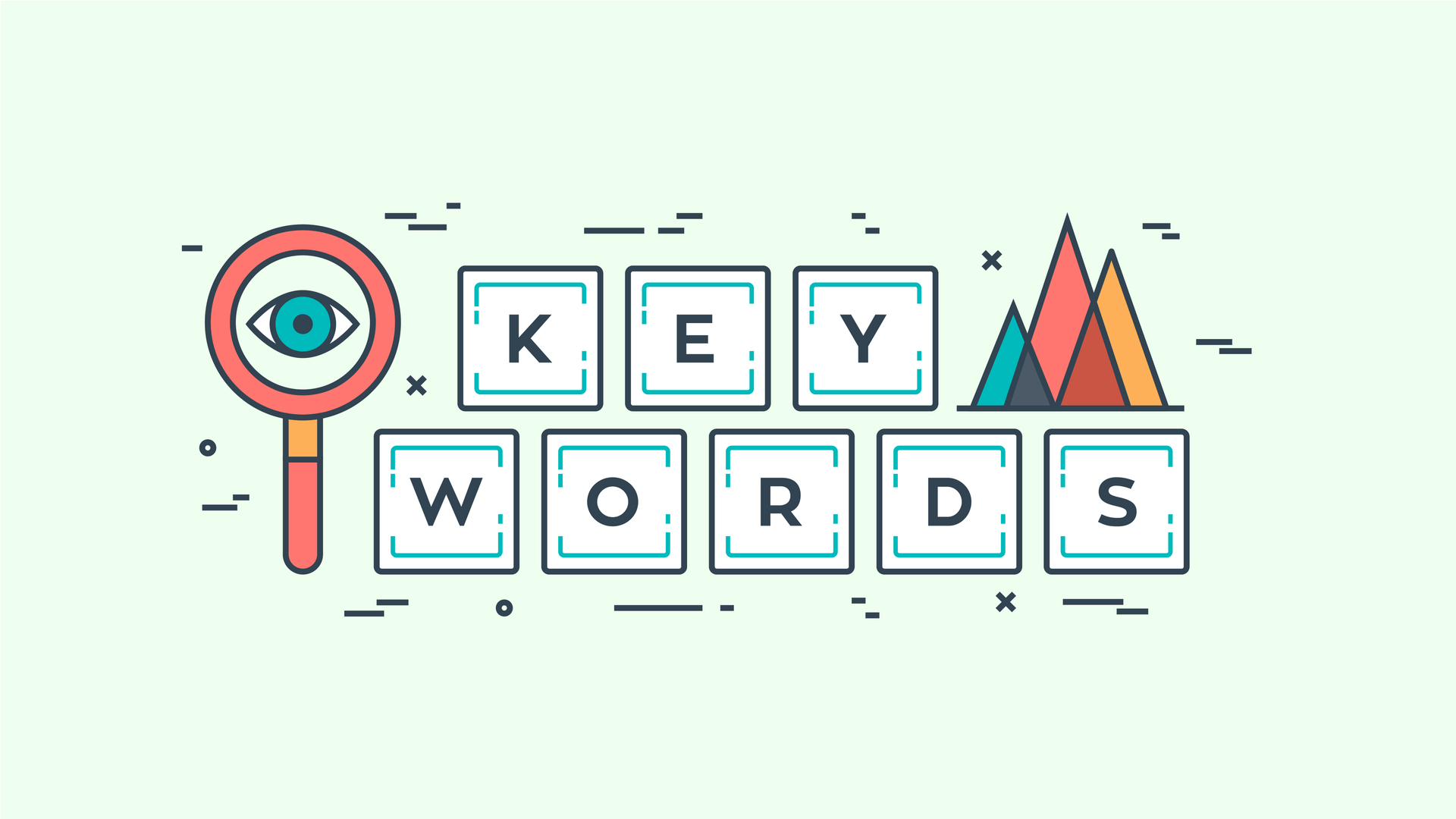
Unfortunately, what can happen, especially if you have bought a cheap SEO package, is that your website copy can be badly written and not focused on your audience.
Your website copy needs to be written in a natural way with your keywords added in appropriate places. You don’t want to be adding sentences in the copy for the sake of placement. Google can read this and is very clever at knowing if you are doing this, which might end up in a penaltyfor your website.
When it comes to adding keywords, the process is very much the same as the other stages. You need to think about the objective of each page and what you want a visitor to find on it. A general rule of thumb is to only optimise for one keyword per page. This makes it easier to focus on what you are trying to convey and for Google to understand the page better.
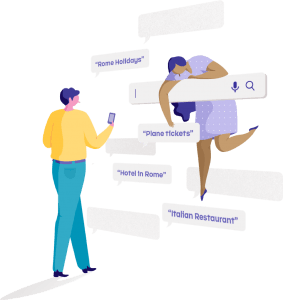 Don’t try and get as many keywords in your site as possible as this will disrupt the page structure and flow of the site. If you need to add more, then you will have to start creating additional content to go in your blog.
Don’t try and get as many keywords in your site as possible as this will disrupt the page structure and flow of the site. If you need to add more, then you will have to start creating additional content to go in your blog.
We will provide a complete guide to website SEO in another article to cover how to do this.
To know which keywords you are going to want in your site, you will have to do some keyword research beforehand so that you can give them to the web development agency to add, along with the copy supplied.
If you don’t know how to do keyword research, then you will probably need the services of an SEO agency to give you guidance and advice.
Ultimately, they should be related to your services and products. Keep the buyer in mind, what they might be searching for and how you can help them and you won’t go far wrong.
CDN’s (Content Delivery Networks)
Do you need a CDN in your website? The answer is; it depends. A CDN is a platform that links to your website and hosts all of your images and video files, amongst other things.
They also connect to the most local server so that they can speed up delivery time from your hosting. If this sounds a bit confusing, don’t worry about it. You will only really need one of these if you are planning to feature video content heavily on your website.
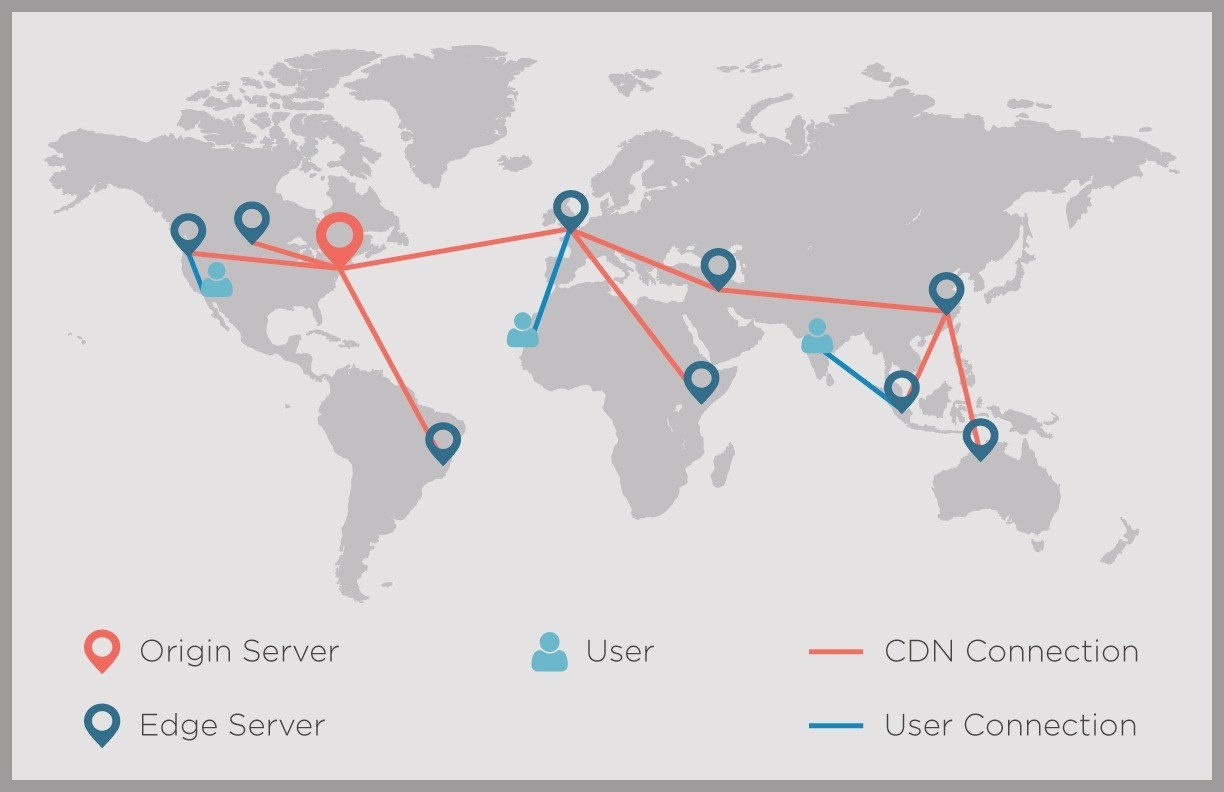
Usually you will only need to think about integrating a CDN with your website if your are looking to reach a global audience. Otherwise you will be fine without.
Again the biggest concern is the use of video on your site. Realistically, you shouldn’t host any videos on your site as they are simply too big for any server to handle at any reasonable sort of speed. If you have images or videos over 500kb (yes, kilobytes) then you run the risk of dramatically slowing your website performance down.
Hosting Videos
 Which brings us nicely onto the next section you need to think about when using an agency for web design. Videos are an excellent method for you to be able to demonstrate something very clearly to your website visitors.
Which brings us nicely onto the next section you need to think about when using an agency for web design. Videos are an excellent method for you to be able to demonstrate something very clearly to your website visitors.
People spend more time watching videos online that pretty much anything else these days, so this is something that you should be looking to incorporate as part of your website design.
However, the major caveat with hosting video on your website is that sheer size of even the smallest video can completely destroy your website loading speed. If you want to add videos to your website, then you will have to speak with your web development agency and ask them to recommend a solution.
Normally that solution will be a CDN, however, that is not the only option. You may be able to run things through your YouTube channel or other video hosting website. These might be a viable option for you, depending on the style and overall design you have on the site.
Website Optimisation
Website optimisation now begins to cross over into the weird and wonderful world of SEO. We won’t be talking about the technical side of this in too much detail today. You should know what you are looking for when it comes to website optimisation though.
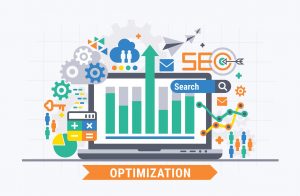 Simply adding keywords to your content won’t help you all that much. There are a whole host of other things that contribute to website optimisation.
Simply adding keywords to your content won’t help you all that much. There are a whole host of other things that contribute to website optimisation.
The format and layout of your copy on your website is just as important as the content itself. When you add content to your web pages, you will want to think about how this can easily be read and understood by your visitors. You need to make it easy for them to quickly understand what the page is about and the key points within in.
Imagine how much more difficult it is to read a block of content on a website as opposed to a nicely segmented and structured page. It might even be the same length, but visually, if the content isn’t broken up and formatted properly for web use, then your visitors simply won’t read it.
This may mean they don’t get the help they are looking for and may bounce off the page. This then contributes to bad ranking ratings by Google.
Website Speed
We’ve spoken about website speed and how quickly content needs to be delivered in order to deliver a good website experience. This musn’t be overlooked. Google recommends that your website takes no more than 5 seconds to load.
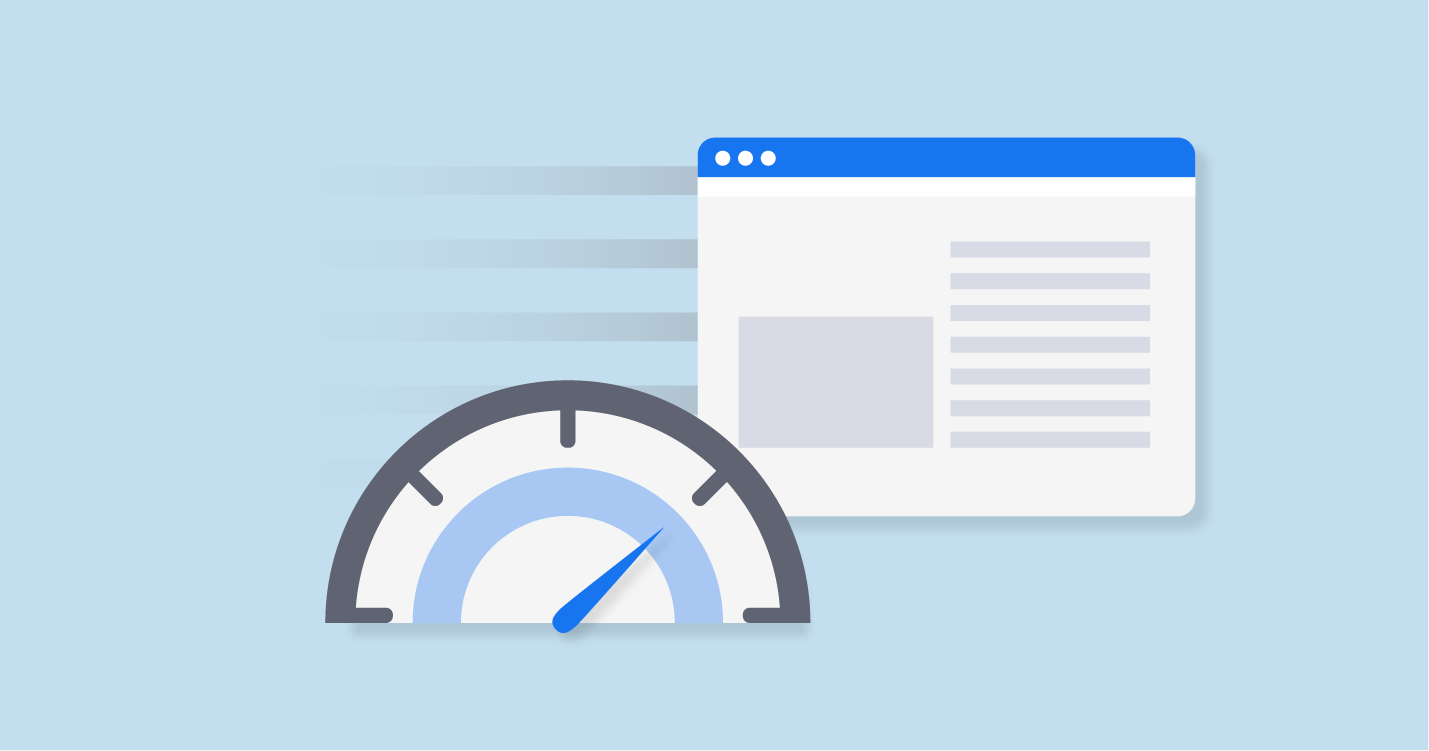
Now, this isn’t something that you can necessarily build into your website when working with a web designer. Your finished website before launch is likely to be quite bulky and that’s okay. You will want to ensure that you have asked your web developer to do several things to ensure that the site is trimmed down and loads quickly.
Remember as well that your site will gradually slow down over time as more items are added and the more the server gets used by people visiting the site.
Here is where we will move towards the technical SEO side of things, which again, is not something you will be required to do, but something you website development company should be taking care of for you after final sign off on the site.
Website have CSS and javascript running through them. You don’t need to know what these are and what they do, but you do need to know they contribute massively to how the website looks and performs.
You will want to make sure that your web designer has minified these where ever possible. They can do this either by writing code or using plugins, depending on what option of website platform you have chosen. If you’ve chosen a website builder platform, you won’t have this option as it will be managed by the platform for you. How well this is actually managed is debatable.
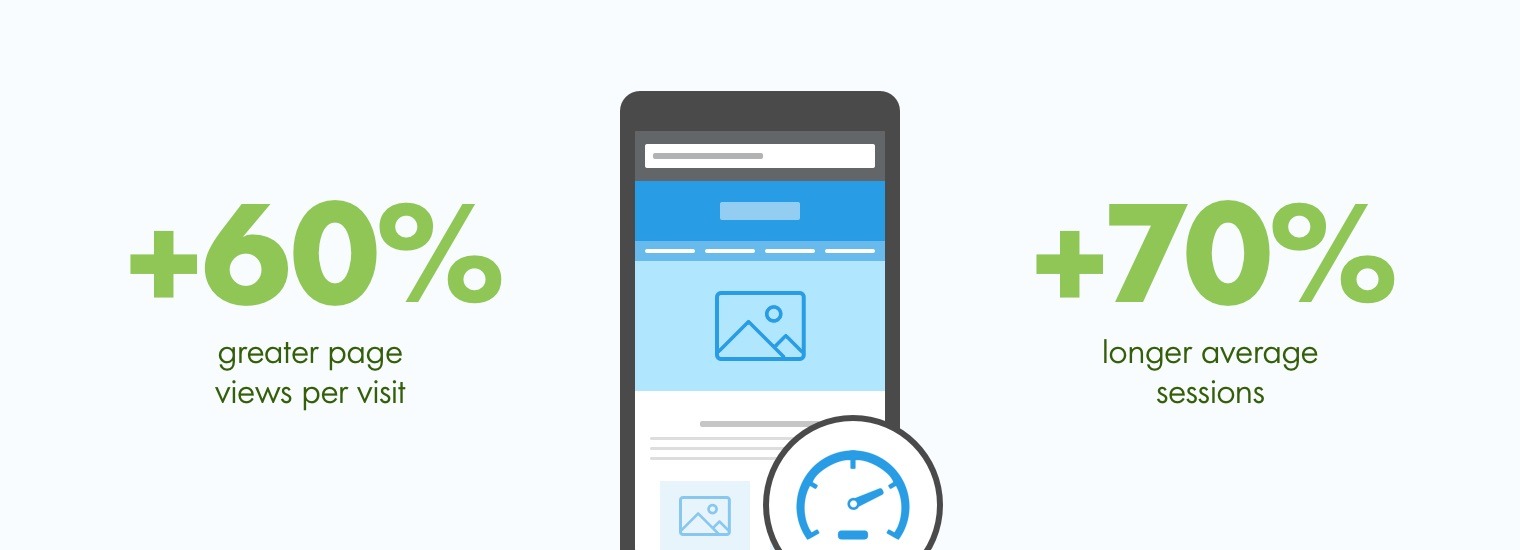
In the website content section we covered the size of images and videos. This is all important here too. You will want to compress these as much as you can but still retain the hi-res quality. Again, the web development agency can either compress these manually or they can use a plugin to process all of the images for you.
They key to website speed optimisation is that everything needs to be as small as possible so that it takes as little time as necessary to load on the page itself.
Again, these are not things that you will have to do yourself, but you really should know about how they affect the site and contribute to the overall performance.
SEO
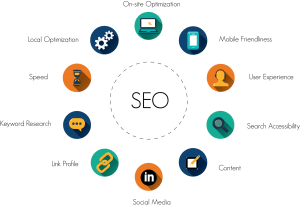 SEO is a massive and detailed subject on its own. We simply cannot cover all of the aspects needed in here. Another article about SEO will be available for you to learn about the ins and outs of this subject. What we will do here cover some of the important things you need to think about when optimising your site.
SEO is a massive and detailed subject on its own. We simply cannot cover all of the aspects needed in here. Another article about SEO will be available for you to learn about the ins and outs of this subject. What we will do here cover some of the important things you need to think about when optimising your site.
Your SEO strategy will determine the keywords you want to focus on. Keywords are important in your website. They help Google to understand what the subject matter of the page is and what you are trying to be found for in relation to someone’s search.
Consistently creating high-value and insightful content that is keyword optimised and linked to the relevant topic pages will make you rank. Again, this is a subject for another day, but just having keywords added to to your copy won’t help you all that much.
On-Page Optimisation
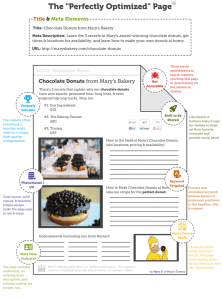 Formatting is everything when it comes to on-page. It is simple enough to do, but many businesses don’t do it properly and therefore don’t give themselves the best chance of being quickly crawled by Google. You will need to take this into consideration when creating the copy for your pages. If you have asked your web development team to manage this, then you can always cross check it against this to make sure it has been done properly.
Formatting is everything when it comes to on-page. It is simple enough to do, but many businesses don’t do it properly and therefore don’t give themselves the best chance of being quickly crawled by Google. You will need to take this into consideration when creating the copy for your pages. If you have asked your web development team to manage this, then you can always cross check it against this to make sure it has been done properly.
- Optimised URL – Keyword must be in URL
- H1 Title – The heading needs to be H1 so Google Knows what the page is about
- Meta Description – So people can get an idea of what they will find on the page
- Alt. Text on Images – So Google can read them and match them to the keywords
- H2 & H3 Tags – Sub headings so Google can read what the article contains
- Internal Links – Links to other pages or articles about similar information
- Outbound Links – Links to other authoritative websites similar to your content
Each page should be set up to have these sections and elements. If you are missing any, then this checklist will be a good starting point to see what you need to add to give a better experience for visitors on your website.
How Long Should Web Development Take?
A simple website development project shouldn’t really take you more than 4 weeks to build. When we say a simple project, we mean a website that has between 5-10 pages, is using a modified template on a CMS platform and has basic integrations, such as webforms.
If you have a site that requires extensive customisation, ecommerce integration and set up, third-party connectivity and configuration, or large volumes of custom coding, then you can expect the timeline to increase by several more weeks.
Every website development agency should have a process they follow to ensure your website is delivered on time. They should be able to walk you through this process and tell you what will be delivered and when. Any one who can’t show you this, you should be wary of.
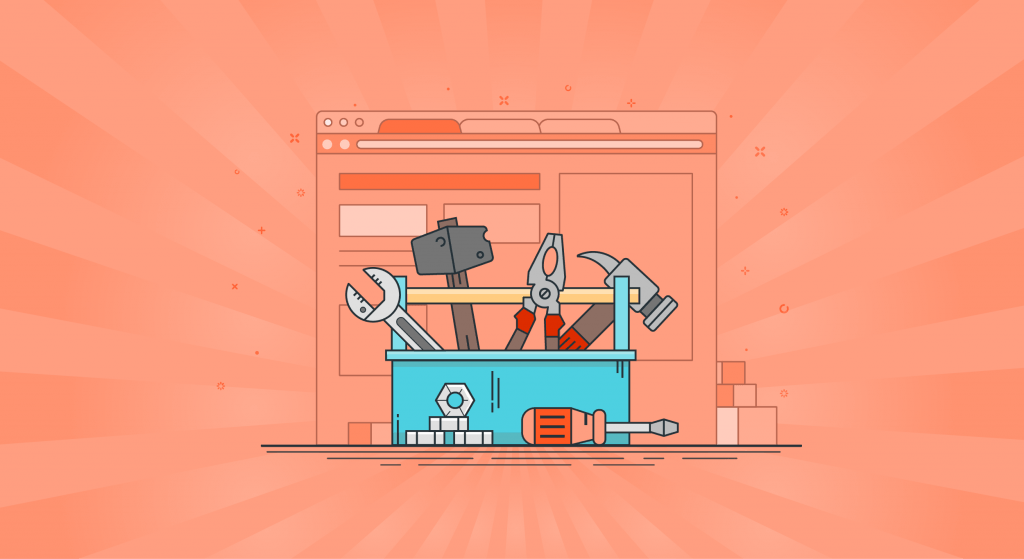
Unfortunately, websites often take a lot longer than 4-weeks to finish. This is usually because of approval stages that are delayed by the client. Yes, we’re going to blame the client in this instance! In our many years of experience having delivered hundreds of websites, the number one challenge we’ve faced has always been the client.
Scope creep (additonal pages, items and functionality being added after the agreed work has been signed off), design edits, mind changes and lack of communication for approvals are all things that delay a projects delivery date far beyond the original timeline.
The way to ensure that you don’t miss these deadlines is to work closely with you web development team and be absolutely sure you are getting everything you want added into the initial scope of work. At INCYCLE, we don’t allow any additional work to be done outside of the signed off scope of work, until the project has been completed according to the signed off scope of work. This may seem a bit harsh, but it keeps us on track and ensures we deliver a client website on time.
Website Security
 We’d all like to believe that a strong enough password on our website admin login details would be enough to stop any unwanted access or intrusions. Unfortunately, we live in a wor;d where a strong password is not enough to keep out determined individuals. Sometimes it doesn’t even have to be a person, so advanced is that malware, spyware and bots that have been deployed across the internet.
We’d all like to believe that a strong enough password on our website admin login details would be enough to stop any unwanted access or intrusions. Unfortunately, we live in a wor;d where a strong password is not enough to keep out determined individuals. Sometimes it doesn’t even have to be a person, so advanced is that malware, spyware and bots that have been deployed across the internet.
Your website security is not something that should be an after-thought. Nor should you think about tightening up security after there has been an attack, as often it is too late by that point. You should be planning on maintaining the highest standards of security on your website from the get go. Fortunately, there are some things that you can do that are simple, easy to manage and highly effective.
First and foremost, make sure you have a strong password on the admin backend. Also, make sure your hosting passwords is strong too. Your website can as easily be accessed from back doors within your hosting as it can from the admin section.
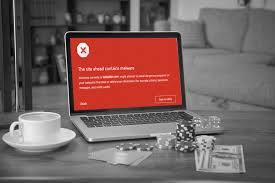 Anti-spam is something you should also have installed on your site. This will stop spam bots from filling in forms as well as trying to inject code into your website (Don’t ask us how this is done as we aren’t really sure. That’s why they call them hackers!).
Anti-spam is something you should also have installed on your site. This will stop spam bots from filling in forms as well as trying to inject code into your website (Don’t ask us how this is done as we aren’t really sure. That’s why they call them hackers!).
Having an SSL (Secure Socket Layer) added to your site is also a great way to ensure that you fend off attacks on your website. It also helps enormously with SEO as Google has stated that a secure site will help with your page authority.
You should also get your site regularly scanned through your hosting to check any files that may be infected without your knowledge. Your hosting will normally take care of this for you, but it’s always good to ask your web development team to help here. If you have a yearly maintenance package, then this will be handled as part of your maintenance routine.
Website Handover
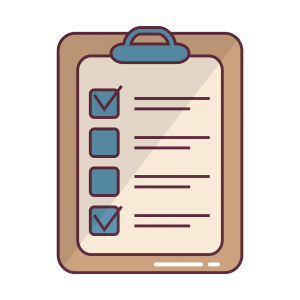 Congratulations! You have successfully navigated the conception, design and build of your new website. It is meticulously thought out as well as focused on your buyer personas and the journey they will take in order to make a conversion decision. The website development agency have optimised the site and properly secured it from attacks. Now what?
Congratulations! You have successfully navigated the conception, design and build of your new website. It is meticulously thought out as well as focused on your buyer personas and the journey they will take in order to make a conversion decision. The website development agency have optimised the site and properly secured it from attacks. Now what?
You’ll want to make sure that you are getting everything that is legally yours upon handover. All of the terms and conditions should be in your website contract, so make sure you have read this properly and ask about anything in there that you don’t understand.
The code of the website should remain the property of you. Even though the web designer may have written it, you have paid for it through their services, and it belongs to your business. You can ask for this to not be reused anywhere else, especially if this is custom coding. All licenses for plugins and tools also belong to you, so if required, you can ask them for the documentation of these items.
It’s always a good idea to get the website development agency to sign an NDA so that they aren’t allowed to replicate any of the images or files for use elsewhere. What we mean by this is duplicating your site for another client. You may not actually be entitled to all of the images or videos on the site, however, as if stock images have been used, then they are the property of the license holder. You can ask for these files to store on your server or elsewhere though. That shouldn’t be a problem.
The copy on the site also belongs to you. You’ll want to ensure that this will not be used anywhere else for copyright reasons as well as a potentially damaging effect this may have on your SEO.
Lastly, you’ll want the access codes to the site itself. You may have had the site built on a different server which will need to be transferred to your hosting. If this is the case then you will need admin access to the back end of the site.
How Much Should A Website Cost?
Much like everything else in the world of digital marketing, the cost of a website varies from agency, to freelancer, to platform builder. The short answer to this is; it depends.
What type of website you are having built, on what platform, with what functionality all play a part in the overall cost of the website. However, we’re here to clarify some things so you can make sense of the prices you may receive that vary so wildly from one web agency to another.
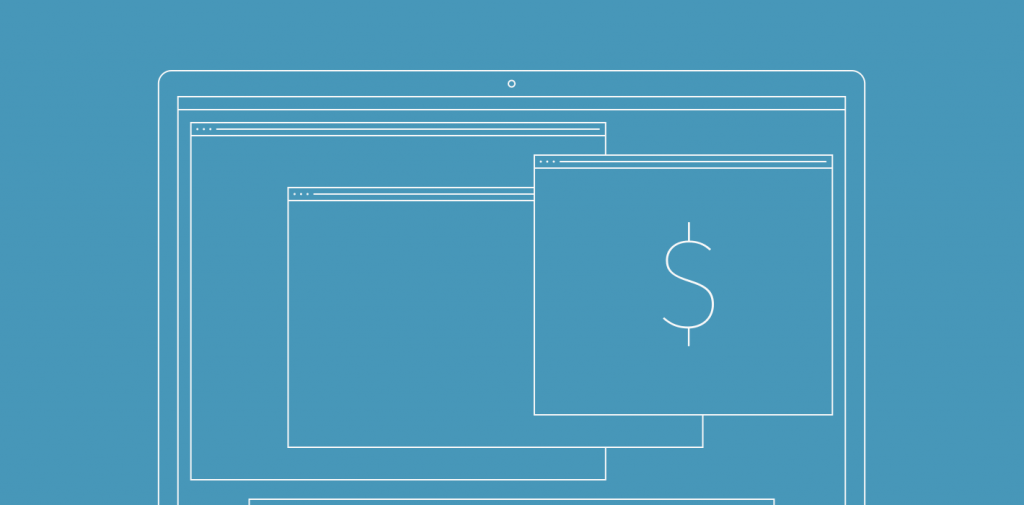
Be very wary of an agency that charges you anything around 2000-3000AED for a website. This will definitely be outsourced and you are likely to have a whole host of issues with it, not less a completion date.
Don’t forget you are paying for website development expertise, as well as the time it takes to put it all together. There are several people and departments that need to be included in your project. If you consider a website should take on average about 30 hours of work to build altogether as a base, and the average web developer costs about 300AED per hour, then just to have that built will be costing you 9,000AED.
That’s without all the other elements we have spoken about in this article, such as:
- Page structure
- Page mapping
- UX & UI design
- Copywriting
- Optimisation
The other thing you have to take into account here is that is simply the cost of building the site. The agency still needs to make money, so you’ll need to add roughly 30% on top of this too.
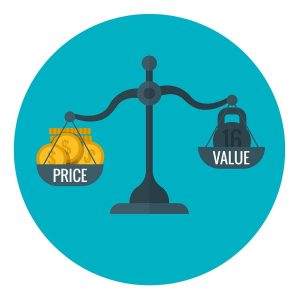 Realistically, a basic website with basic tools included is going to cost you no less than 15,000AED. If you think that is expensive, then you see how much it will cost you to fix a website that has been poorly built!
Realistically, a basic website with basic tools included is going to cost you no less than 15,000AED. If you think that is expensive, then you see how much it will cost you to fix a website that has been poorly built!
If you are looking for more pages, advanced functionality, ecommerce integration, marketplace set up and the like then you can expect the price to increase considerably.
So, there you have it. The complete guide to website development in Dubai.
Have you had a website built recently? Did you pay more than 15,000AED or less? Do you feel like you got everything you needed and was your experience with the agency good?
Reach out to us an let us know by dropping us an email on info@incyclemarketing.com
Looking to get a website developed? Now you have all the info you could ever need, you know you can get your project up and running quickly. Book a time with us for your free consultation to see how we can get you started. Simply click the button below!